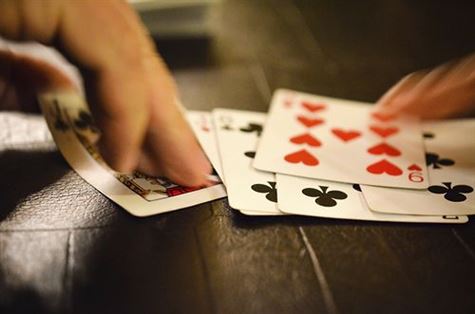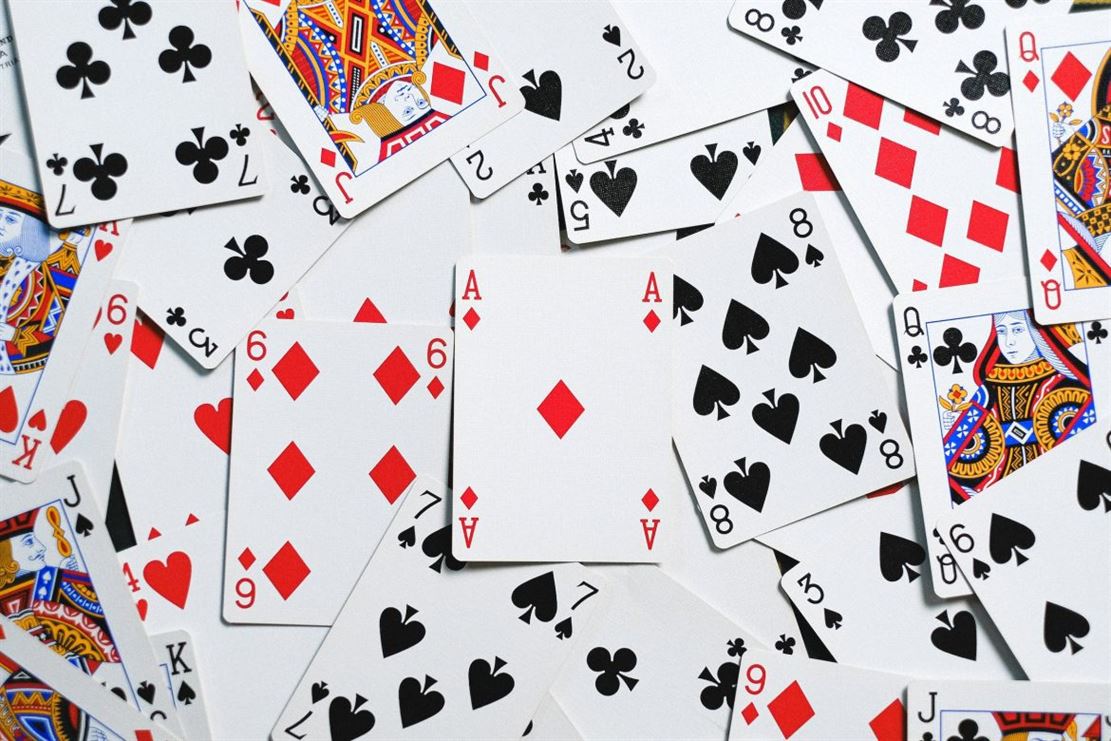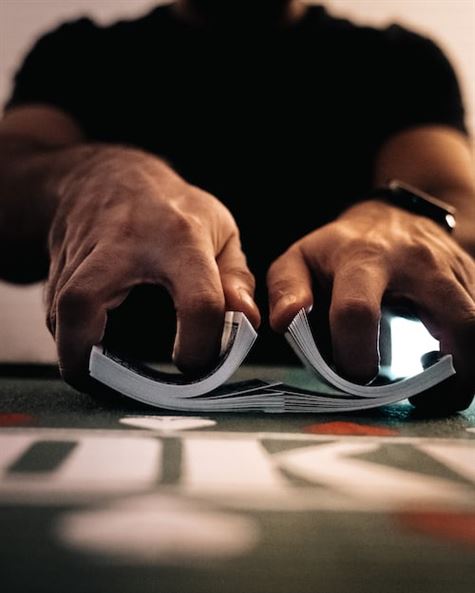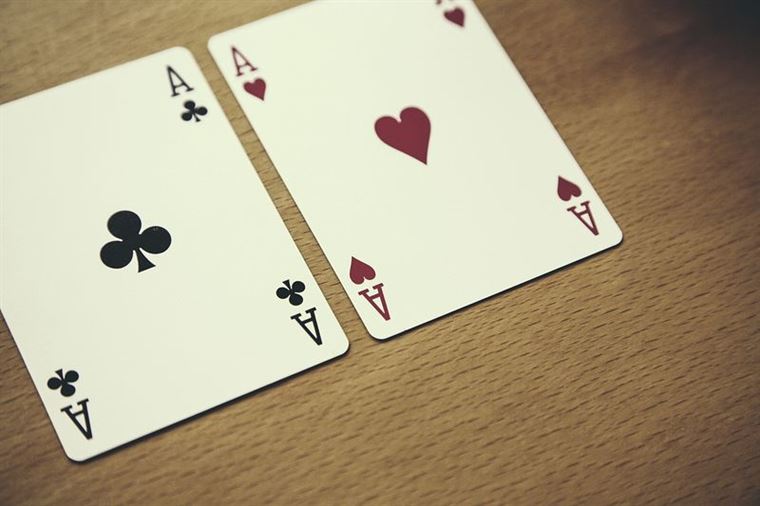Poker training courses have become increasingly popular among both novice and experienced players looking to improve their skills and enhance their chances of winning. With a wide range of options available, choosing the best course can be a daunting task. This article aims to provide guidance on how to select the most suitable poker training course for you, taking into consideration factors such as your skill level, learning style, budget, and specific goals. By making an informed decision, you can maximize the benefits of your poker training and accelerate your progress in the game.
The Importance of Poker Training for Improving Your Skills
Poker is a game of skill, strategy, and intuition. It requires a deep understanding of the game, the ability to read your opponents, and the discipline to make calculated decisions. While some people may have a natural talent for poker, most players need to invest time and effort into improving their skills. This is where poker training comes in.
Poker training is essential for anyone looking to take their game to the next level. It provides players with the knowledge and tools they need to make better decisions, analyze their opponents, and ultimately increase their chances of winning. Whether you’re a beginner or an experienced player, there is always room for improvement, and poker training can help you achieve that.
One of the first things to consider when choosing a poker training course is your skill level. Are you a beginner looking to learn the basics of the game, or are you an experienced player looking to refine your skills? Different courses cater to different skill levels, so it’s important to choose one that aligns with your current abilities.
Another important factor to consider is the teaching style of the course. Some courses may focus more on theory and strategy, while others may provide more hands-on practice. Think about how you learn best and choose a course that matches your preferred learning style. If you’re someone who learns better through practical application, a course that offers live play sessions or interactive exercises may be more beneficial for you.
It’s also worth considering the reputation and credibility of the course provider. Look for courses that are taught by experienced and successful poker players. Check for reviews and testimonials from previous students to get an idea of the course’s effectiveness. A reputable course provider will have a track record of producing skilled and successful players.
Additionally, consider the course content and curriculum. Does it cover all aspects of the game, from basic rules to advanced strategies? Does it provide comprehensive training on different poker variations, such as Texas Hold’em or Omaha? A good course should offer a well-rounded education that covers all the essential elements of poker.
Furthermore, consider the format and accessibility of the course. Is it an online course that you can access at your own convenience, or is it a live workshop that requires you to attend in person? Think about your schedule and availability when choosing a course format that works best for you.
Lastly, consider the cost of the course. While poker training can be a valuable investment in your skills, it’s important to choose a course that fits within your budget. Compare the prices of different courses and weigh them against the value they offer. Remember, the most expensive course isn’t necessarily the best, and the cheapest course may not provide the level of training you need.
In conclusion, poker training is crucial for anyone looking to improve their skills and increase their chances of winning. When choosing a course, consider your skill level, teaching style, reputation of the provider, course content, format, and cost. By carefully considering these factors, you can find the best poker training course that suits your needs and helps you become a better player. So, invest in your poker education and watch your game soar to new heights.
Evaluating Different Poker Training Courses: Factors to Consider
When it comes to improving your poker skills, enrolling in a poker training course can be a game-changer. However, with so many options available, it can be overwhelming to choose the best course for you. To make an informed decision, there are several factors you should consider.
First and foremost, you need to evaluate the reputation and credibility of the course. Look for courses that are developed by renowned poker professionals or endorsed by reputable poker organizations. This ensures that the course content is reliable and up-to-date, providing you with the most relevant strategies and techniques.
Next, consider the teaching methodology employed by the course. Some courses may focus on theoretical concepts, while others may emphasize practical application through hands-on exercises and simulations. Think about your preferred learning style and choose a course that aligns with it. If you learn best by doing, a course that offers interactive exercises and real-life scenarios may be more suitable for you.
Another crucial factor to consider is the level of expertise the course caters to. Are you a beginner looking to learn the basics, or an experienced player aiming to take your game to the next level? Make sure the course you choose is tailored to your skill level. A course that is too advanced may leave you feeling overwhelmed, while a course that is too basic may not provide you with the challenge you need to grow.
Additionally, take into account the duration and flexibility of the course. Some courses may be intensive, requiring a significant time commitment, while others may be more flexible, allowing you to learn at your own pace. Consider your schedule and availability, and choose a course that fits your lifestyle. Remember, consistency is key in poker training, so it’s important to select a course that you can commit to.
Cost is another factor that cannot be overlooked. Poker training courses can vary greatly in price, so it’s essential to determine your budget and find a course that offers the best value for your money. Keep in mind that a higher price does not always guarantee a better course, so be sure to read reviews and testimonials from previous students to get an idea of the course’s effectiveness.
Lastly, consider the additional resources and support provided by the course. Does it offer access to a community of fellow students or provide ongoing support from instructors? These resources can be invaluable in your poker journey, as they allow you to connect with like-minded individuals and seek guidance when needed.
In conclusion, choosing the best poker training course for you requires careful evaluation of several factors. Consider the reputation, teaching methodology, skill level, duration, flexibility, cost, and additional resources of each course. By taking these factors into account, you can make an informed decision that aligns with your goals and maximizes your chances of success in the world of poker. So, take your time, do your research, and get ready to elevate your poker game to new heights.
Finding the Right Poker Training Course for Your Skill Level
When it comes to poker, there’s always room for improvement. Whether you’re a beginner looking to learn the basics or an experienced player aiming to take your game to the next level, enrolling in a poker training course can be a game-changer. But with so many options available, how do you choose the best course for you? In this article, we will explore the factors to consider when finding the right poker training course for your skill level.
First and foremost, it’s essential to assess your current skill level. Are you a complete novice, or do you have some experience under your belt? Understanding where you stand will help you narrow down your options. Many training courses cater to specific skill levels, from beginner to advanced. By choosing a course that aligns with your abilities, you can ensure that you’re not overwhelmed or bored during the learning process.
Next, consider the teaching style of the course. Some people prefer a hands-on approach, while others thrive in a more theoretical setting. Look for courses that offer a teaching style that resonates with you. For example, if you learn best through practical examples and real-life scenarios, a course that focuses on live gameplay and analysis might be the perfect fit. On the other hand, if you prefer a more structured and theoretical approach, a course that delves into the mathematics and strategies behind the game might be more suitable.
Another crucial factor to consider is the reputation and credibility of the course. Do your research and read reviews from previous students. Look for courses that have a track record of success and positive feedback. A reputable course will have experienced instructors who are knowledgeable and skilled in the game of poker. Additionally, consider whether the course offers any certifications or credentials upon completion. These can add value to your resume and demonstrate your commitment to improving your poker skills.
Furthermore, it’s important to evaluate the course content and curriculum. Different courses may focus on different aspects of the game, such as cash games, tournaments, or specific poker variations. Determine what areas you want to improve in and find a course that covers those topics comprehensively. Additionally, consider the format of the course. Some courses are self-paced, allowing you to learn at your own speed, while others have a structured schedule with live sessions and assignments. Choose a format that suits your learning style and availability.
Lastly, consider the cost and value of the course. Poker training courses can vary significantly in price, so it’s essential to weigh the cost against the potential benefits. Look for courses that offer a good balance between affordability and quality. Keep in mind that investing in your poker education can lead to long-term gains at the poker table, so don’t shy away from courses that may be slightly more expensive if they offer exceptional value.
In conclusion, choosing the right poker training course for your skill level requires careful consideration. Assess your current abilities, determine your preferred teaching style, and research the reputation and credibility of the course. Evaluate the course content and curriculum, as well as the format and cost. By taking these factors into account, you can find a poker training course that will help you enhance your skills and achieve your poker goals. Remember, poker is a game of skill, and with the right training, you can become a formidable player at the table.
Tips for Maximizing Your Learning Experience in Poker Training
Poker is a game of skill and strategy, and if you want to improve your game, poker training is a must. But with so many courses and programs available, how do you choose the best one for you? In this article, we will provide you with some tips on how to maximize your learning experience in poker training.
First and foremost, it is important to assess your current skill level. Are you a beginner looking to learn the basics, or are you an experienced player looking to take your game to the next level? Understanding where you stand will help you narrow down your options and find a course that is tailored to your needs.
Next, consider the format of the training. Some courses are offered online, while others are conducted in-person. Online courses offer the convenience of learning from the comfort of your own home, while in-person courses provide the opportunity for hands-on practice and interaction with other players. Think about which format would work best for you and choose a course accordingly.
Another important factor to consider is the reputation and credibility of the course provider. Do some research and read reviews from other players who have taken the course. Look for testimonials and success stories to get a sense of the course’s effectiveness. It is also a good idea to check if the course provider is affiliated with any reputable poker organizations or has any industry recognition.
When choosing a poker training course, it is crucial to look for one that covers a wide range of topics. A comprehensive course should include lessons on hand selection, position play, bankroll management, and reading opponents, among other things. Make sure the course covers all aspects of the game that you want to improve on.
Furthermore, consider the teaching style of the course. Some people learn best through lectures and theory, while others prefer a more hands-on approach. Look for a course that aligns with your preferred learning style to ensure that you get the most out of your training.
Additionally, it is important to set realistic expectations for yourself. Poker training is not a magic pill that will instantly turn you into a professional player. It requires time, effort, and practice. Understand that improvement will come gradually, and be patient with yourself as you go through the learning process.
Lastly, take advantage of any additional resources or support that the course offers. Some courses provide access to a community of fellow players where you can ask questions, share experiences, and receive feedback. Others offer ongoing support through coaching or mentorship programs. These resources can greatly enhance your learning experience and provide you with valuable insights and guidance.
In conclusion, choosing the best poker training course for you requires careful consideration of your skill level, the format of the training, the reputation of the course provider, the topics covered, the teaching style, and your own expectations. By taking these factors into account and making an informed decision, you can maximize your learning experience and improve your poker game. Remember, poker training is an investment in yourself, and with the right course, you can take your skills to new heights.
Understanding the Different Approaches to Poker Training
When it comes to improving your poker skills, there is no shortage of training options available. From online courses to live workshops, the choices can be overwhelming. So how do you choose the best course for you? Understanding the different approaches to poker training is a crucial first step.
One popular approach to poker training is the online course. These courses offer the convenience of learning from the comfort of your own home, at your own pace. They often include video lessons, interactive quizzes, and forums for discussion with fellow students. Online courses are a great option for those who prefer a self-directed learning experience and have the discipline to stick to a structured curriculum.
Another approach to poker training is live workshops. These intensive, hands-on sessions are typically led by experienced poker professionals. Participants have the opportunity to learn directly from the experts, ask questions, and receive personalized feedback on their gameplay. Live workshops are ideal for those who thrive in a group setting and value the immediate feedback and interaction with instructors and peers.
For those who prefer a more personalized approach, private coaching may be the best option. Private coaches work one-on-one with students, tailoring their instruction to the individual’s specific needs and goals. This approach allows for a deep dive into the student’s gameplay, identifying strengths and weaknesses and providing targeted strategies for improvement. Private coaching is ideal for serious players who are committed to taking their game to the next level and are willing to invest in personalized guidance.
In addition to these traditional approaches, there are also innovative methods of poker training emerging in the digital age. Virtual reality (VR) poker training, for example, offers a unique and immersive learning experience. With VR technology, players can step into a virtual poker room, interact with virtual opponents, and practice their skills in a realistic environment. This cutting-edge approach to training is ideal for those who are tech-savvy and enjoy exploring new technologies.
When choosing a poker training course, it’s important to consider your learning style and preferences. Are you a self-motivated learner who thrives in a structured online environment? Or do you prefer the energy and interaction of a live workshop? Perhaps you value the individual attention and personalized guidance of private coaching. Or maybe you’re excited about the possibilities offered by emerging technologies like VR.
It’s also important to consider your goals and aspirations as a poker player. Are you looking to improve your skills for recreational purposes, or do you have ambitions of becoming a professional player? Different courses may cater to different skill levels and goals, so it’s essential to choose one that aligns with your objectives.
Ultimately, the best poker training course for you is the one that fits your learning style, preferences, and goals. By understanding the different approaches to poker training and considering these factors, you can make an informed decision and embark on a journey of improvement and success in the world of poker.
How to Stay Motivated and Consistent in Your Poker Training Journey
When it comes to poker training, staying motivated and consistent is key to improving your skills and becoming a successful player. With so many courses and resources available, it can be overwhelming to choose the best one for you. In this article, we will explore some tips and strategies to help you stay motivated and consistent in your poker training journey.
First and foremost, it is important to set clear goals for yourself. What do you want to achieve through your poker training? Do you want to become a professional player or simply improve your skills for recreational purposes? By defining your goals, you can better align your training efforts and stay motivated throughout the process.
Once you have set your goals, it is crucial to create a structured training schedule. Consistency is key in any form of training, and poker is no exception. Set aside dedicated time each day or week to focus solely on your poker training. Treat it as you would any other commitment or appointment, and stick to your schedule as much as possible.
To maintain motivation, it is important to find a training course or resource that suits your learning style and preferences. Some people prefer interactive online courses with video tutorials and quizzes, while others may prefer one-on-one coaching or live training sessions. Consider your own learning style and choose a course that aligns with it. This will make the learning process more enjoyable and engaging, ultimately keeping you motivated to continue.
In addition to finding the right course, it is also helpful to join a community of like-minded individuals who share your passion for poker. Surrounding yourself with fellow players can provide a support system and a sense of camaraderie. Online forums, social media groups, and poker communities are great places to connect with other players, share experiences, and seek advice. This sense of community can help you stay motivated and inspired throughout your poker training journey.
Another effective strategy to stay motivated is to track your progress. Keep a record of your wins, losses, and overall performance. This will not only help you identify areas for improvement but also serve as a reminder of how far you have come. Celebrate your successes, no matter how small, and use them as fuel to keep pushing forward.
It is also important to take breaks and give yourself time to rest and recharge. Poker training can be mentally and emotionally demanding, and burnout is a real risk. Incorporate regular breaks into your training schedule, and engage in activities that help you relax and unwind. This will help you maintain a healthy balance and prevent burnout, ultimately allowing you to stay motivated and consistent in your poker training.
Lastly, remember to have fun! Poker is a game, and while training is important, it should also be enjoyable. Find ways to make your training sessions fun and engaging. Play with friends, participate in online tournaments, or challenge yourself with new strategies. By infusing fun into your training, you will naturally stay motivated and eager to continue improving your skills.
In conclusion, staying motivated and consistent in your poker training journey is crucial for success. Set clear goals, create a structured training schedule, find a course that suits your learning style, join a community, track your progress, take breaks, and most importantly, have fun. By following these strategies, you will be well on your way to becoming a skilled and successful poker player. In conclusion, when choosing a poker training course, it is important to consider factors such as the course content, instructor expertise, learning format, and cost. Assessing your own skill level and goals can also help in selecting the best course that aligns with your specific needs. Ultimately, the best course for you will be one that provides comprehensive and practical training, delivered by experienced instructors, and fits within your budget and preferred learning style.




